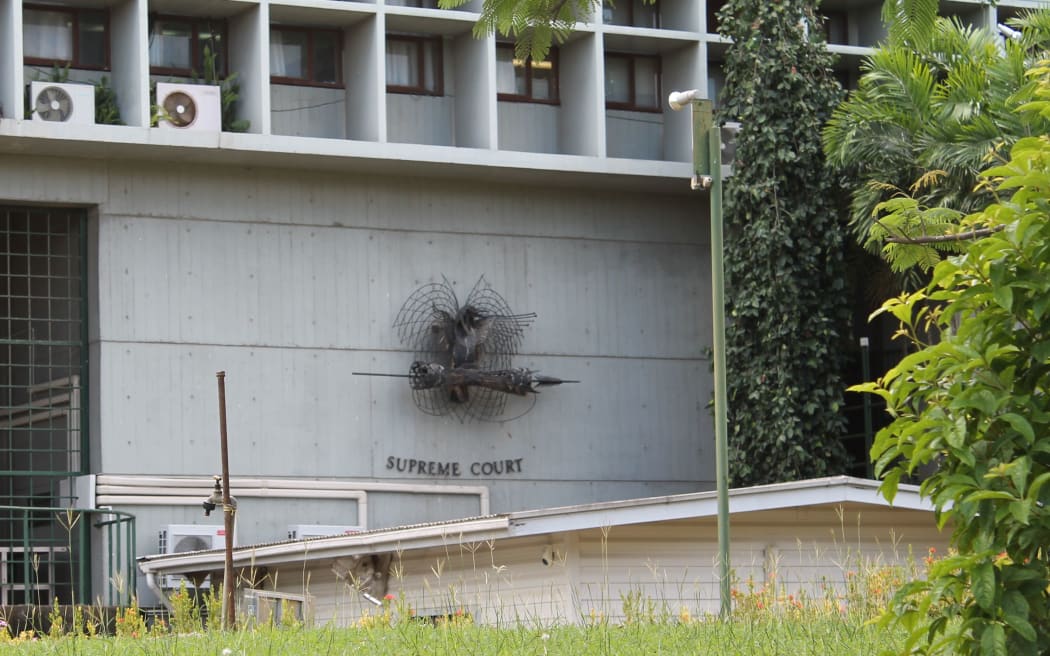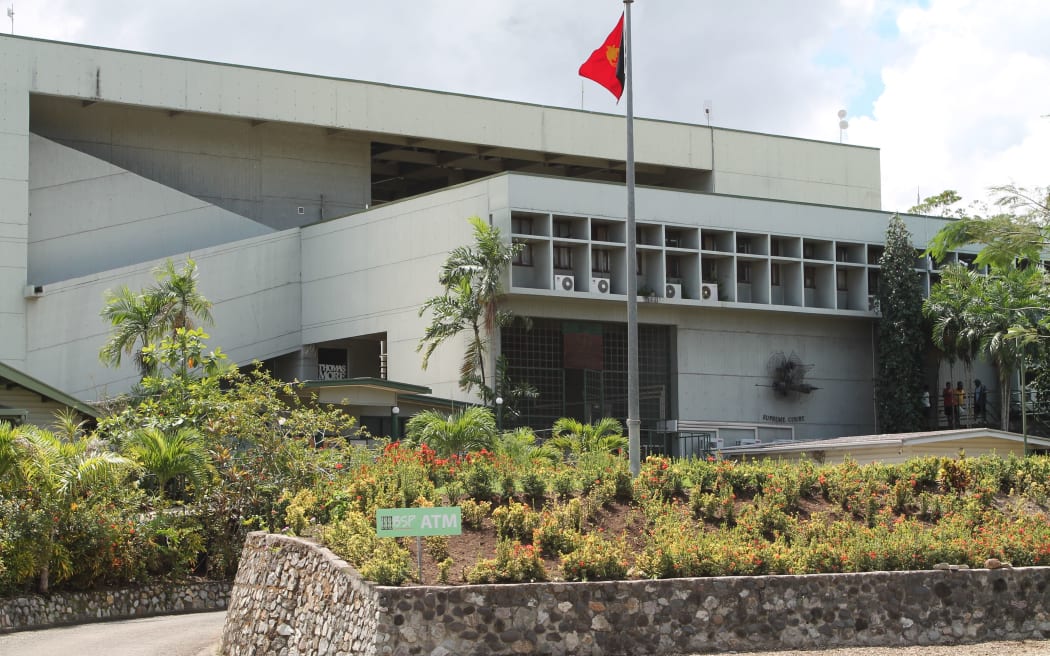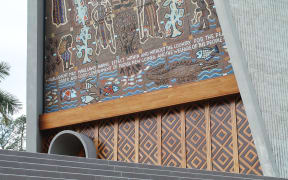
Papua New Guinea Supreme Court. Photo: RNZ / Johnny Blades
The Papua New Guinea man who launched a successful legal challenge against changes to the constitution regarding parliament and motions of no-confidence says this month's decision was a landmark ruling for the individual's rights.
The changes, introduced by the Peter O'Neill-led government, included extending the grace period protecting a government from no-confidence votes from 18 to 30 months after an election. On top of the existing grace period of 12 months before an election, this amendment meant that government was effectively locked in and largely unaccountable for over two-thirds of PNG's five year parliamentary term.
The amendments also included increasing the number of MPs' signatures required to support a vote of no-confidence from 11 to 22, and increasing the period of notice for such a vote from one week to one month.
Another key change was reduction to the number of parliament sitting days in a year from 63 days to 40 days. However a Supreme Court bench found the changes to be undemocratic and ruled them were unconstitutional and of no effect.
The former chief ombudsman Ila Geno initiated the court challenge and was given standing to argue the case. Later, in 2014, the then opposition leader Belden Namah initiated a separate case and the Chief Justice forced the joining of the Geno and Namah cases. They argued that the government's amendments were undemocratic.
Mr Geno says that his successful supreme court challenge shows how an individual has the right to apply scrutiny on the executive arm of state.
"And they must be given the freedom to decide, without fear or favour, but not locked in. And people who are in authority of position should not become an exclusive club and unjudgeable. They must be subject to scrutiny. And that's the position I came from."

The Papua New Guinea Supreme Court. Photo: RNZ / Johnny Blades
In delivering the ruling, the Chief Justice Sir Salamo Injia said the amendments prevented accountability and restricted the right of MPs under other provisions of Constitution.
Sir Salamo said the changes "were rushed through in Parliament by the executive government, buoyed by its success after the 2012 general elections that an unprecedented number of MPs supporting the government; in the name of political stability, with the aim of entrenching power in the government at the expense of the Parliament, the MPs and Parliamentary democracy."



